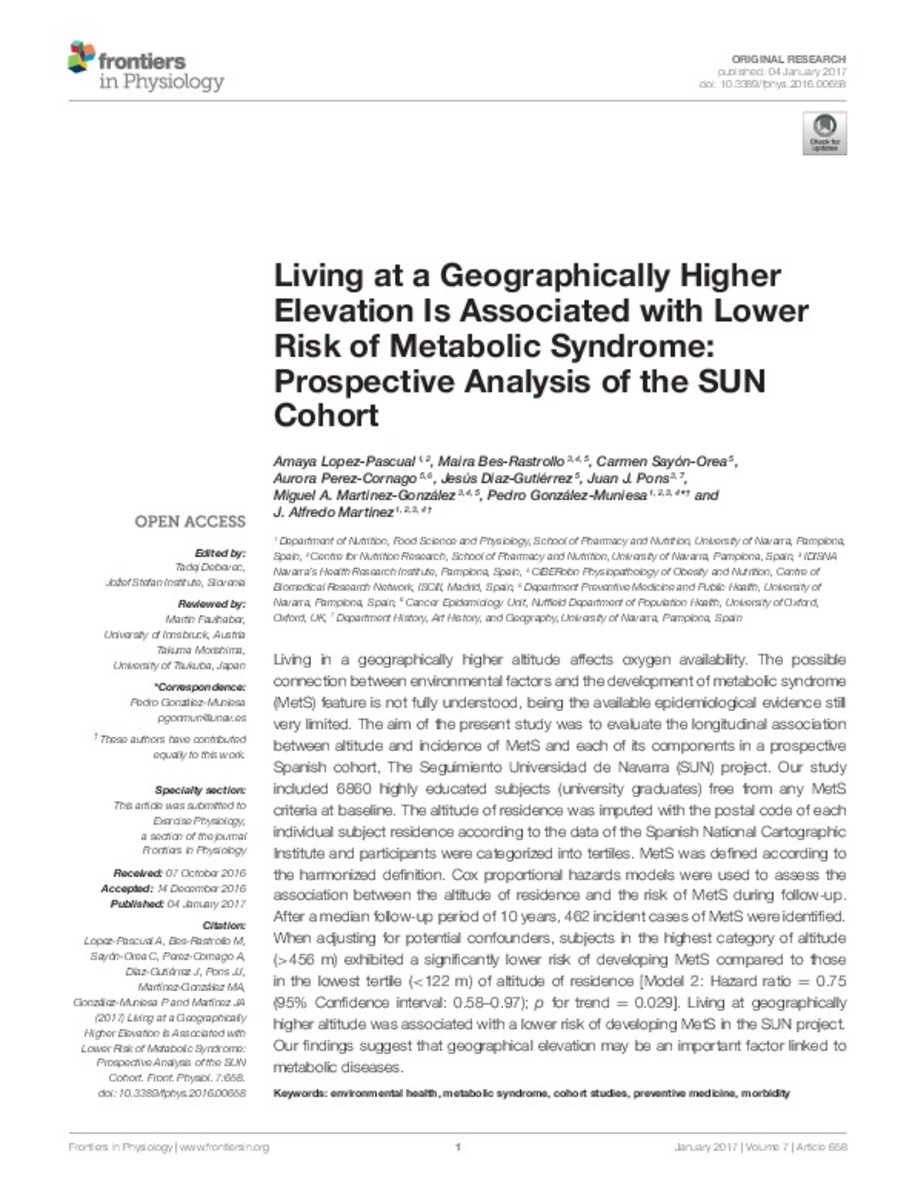Living at a geographically higher elevation is associated with lower risk of metabolic syndrome: prospective analysis of the SUN Cohort
Keywords:
Materias Investigacion::Ciencias de la Salud::Nutrición y dietética
Environmental health
Metabolic syndrome
Cohort studies
Preventive medicine
Morbidity
Publisher:
Frontiers Media
Citation:
Lopez-Pascual A, Bes-Rastrollo M, Sayón-Orea C, et al. Living at a Geographically Higher Elevation Is Associated with Lower Risk of Metabolic Syndrome: Prospective Analysis of the SUN Cohort. Frontiers in Physiology. 2017; 7:658.
Statistics and impact
0 citas en

0 citas en

Items in Dadun are protected by copyright, with all rights reserved, unless otherwise indicated.










